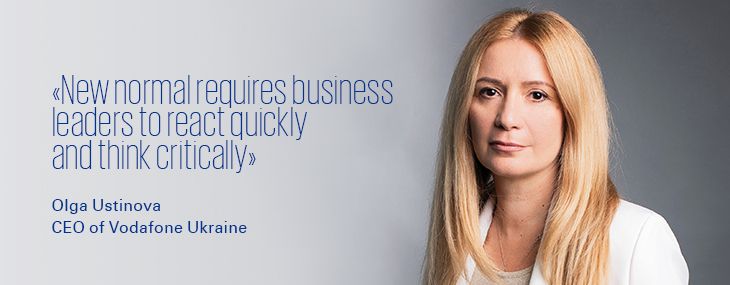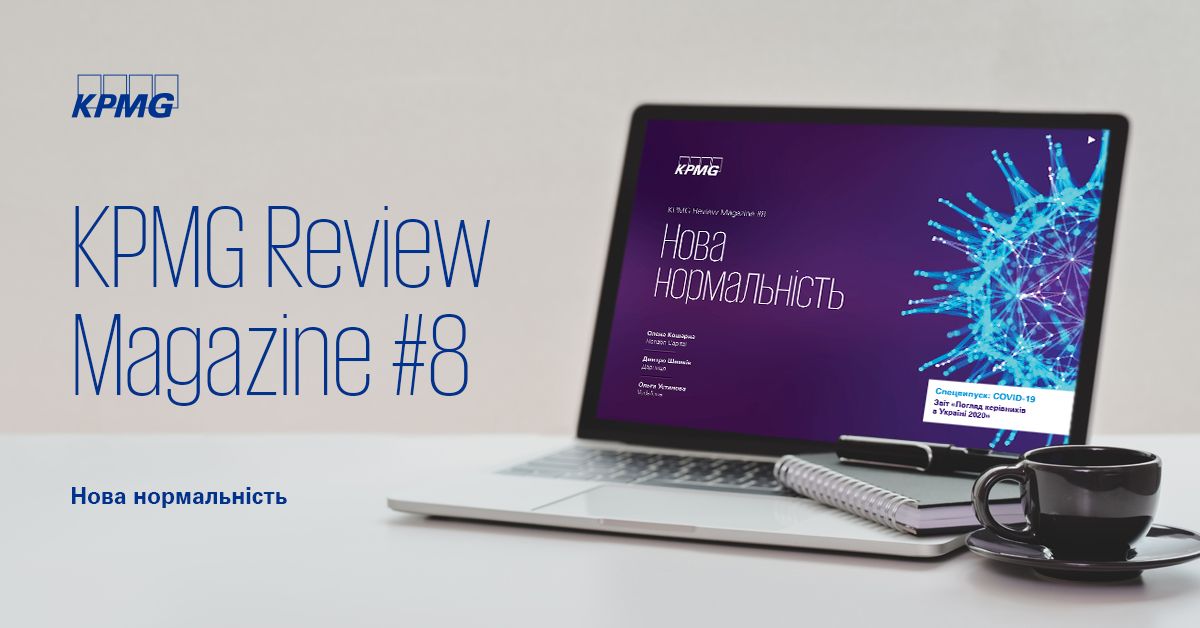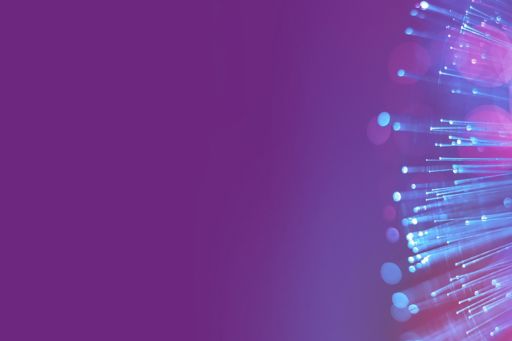Has the COVID-19 crisis changed your company's development strategy? What has changed in the long run? Has the pandemic affected your business model and investment decisions? And, if so, how exactly?
COVID has partially affected our work, but mostly our operational activities. However, we quickly adapted our business processes to these new realities. It was much easier for us to switch to out-of-office work than for other companies because one of the key strategic tasks for us a few years ago was the complete digital transformation of our business which we are continue to do very well. Regarding the company's strategy, the pandemic had no significant impact on our business. We do not plan to stop or radically revise our investment programme. It is important for us and our shareholders to maintain a high level of network quality and services according to the European standards of the Vodafone Group, and we continue to invest in the development of new technologies. In April of this year, we started implementing another large-scale project to build 4G capacity in the 900 MHz band in villages, which will remain a priority for the next 2 to3 years. By the end of 2020, we plan to launch the LTE 900 network in all regions of Ukraine and provide access to high-speed internet for 90% of Ukrainians within the next two years.
Download the eighth issue of KPMG Review Magazine "A new normal" (PDF 4 MB).

In general, the telecom industry is the least vulnerable to the risks caused by COVID-19. We have lost some revenue, for example, from roaming services. It is difficult to avoid the challenges and risks posed by such a situation but these are manageable risks. Today, there are many unknowns in the economy and in business. Our business depends more on upcoming economic decisions than on the coronavirus situation.
The goal for the next 2 years is to withdraw from paper use for 80 percent of all documents: both internal and external
Your company has been at the forefront of business transformation for a long period. Have you launched any business transformation processes during the pandemic?
If so, tell us about these projects and their purpose. In geometric progression, the volume of electronic document flow has grown and continues to grow. The goal for the next 2 years is to withdraw from paper use for 80 percent of all documents: both internal and external. The remaining 20 percent cannot by digitalised due to legal restrictions. We had a well-developed system of electronic approvals — almost all company documents passed through it. With the beginning of quarantine, and thanks to introduction of qualified electronic signatures and Mobile ID technology, we have moved to a full cycle for all approval procedures. Moreover, part of this document flow has moved to a new mobile application, the development of our IT specialists, which allows one to sign contracts directly via their smartphone.
Under normal conditions, the digital transformation of a country takes 4 to 5 years. Quarantine has accelerated this process. And this is the positive side of the crisis
Another important project is the full transition to remote work. The virtual working day has been put into practice by Vodafone before. The pandemic has required the introduction of certain IT tools that allow all employees to work simultaneously from home in the same way as working in the office: with secure access to working documents, reconciliation systems, financial accounting, data storage, etc. We switched to remote mode almost instantly and successfully operated throughout the entire quarantine period without reducing the pace of decision-making or project management. Now, with the resumption of public transport, we use a mixed schedule: part of the week we work in the office, and part of it we work remotely.
The need for increased digitisation and innovation due to the coronavirus creates the preconditions for increasing cyber risks. Today, companies have a dual responsibility. On the one hand, they should ensure the digital security of their companies and customers. On the other hand, they have to be ready for actions of hackers. How is your company coping with this task?
Vodafone has a remote connection infrastructure with all necessary points of control, user protection, and company resources. What has changed, then? Firstly, the number of remote connections of employees has increased 4 to5 times over. Secondly, taking into account the fact that our partner contact centres have also been forced to switch to remote work, we have organised remote round-the-clock support for their work. It was different with attempted external attacks: during quarantine, their number increased 10 to15 times. At the same time, the ‘quality’ of such attempts has dropped significantly. Apparently, the ‘young hackers’ have got a lot of free time during the quarantine, because you don't have to go to school, institutes or offices, and because of that excess of free time they began to resort to such pursuits. We simply blocked all ‘attempts’ automatically. We are take our responsibility for information security, protection against leaks, and cyberattacks very seriously. We have implemented international information security standards which are mandatory for all Vodafone companies. There is an intelligent protection system that allows us to rapidly detect and stop unauthorized access attempts to financial and personal data. The intelligent platform of the system analyses what is happening in all the important information systems of the company, processing confidential information and the personal data of subscribers. Various systems are used to protect data: leakage protection systems, privileged access control systems, database transaction control systems, encryption systems for disks and removable media, double control of Internet connections from inside and outside the corporate network. All traffic is in the network double-filtered, even before it gets inside. Outgoing connections are also filtered.
COVID-19 has created a need for rapid and radical changes, and innovation in business. Tell us about your company's innovations during this period.
Aside from the innovations during quarantine that we’ve already talked about, in general, I can add that the events of recent months have clearly shown the real meaning and importance of online technology. Thanks to the development of technologies (the internet, cloud storage, and secure access to both, electronic signatures, etc.) a quarantine that would have completely paralysed this country only 10 years ago has had far fewer negative consequences. This is because business processes have changed. We understand that the quarantine and the crisis will end. But the world will no longer be what it used to be. And one thing is for sure: that world will definitely be digital. I expect that our partners, business clients and the state, are now aware of the meaning of implementing digital processes, electronic document flow, etc. If more companies had done this in the past, we would have had fewer accountants and office workers forced to work in offices during quarantine. Of course, after the crisis this situation will be difficult and there will be many losses. But on the other hand, I'm sure there will also be new opportunities. The transition to digital technologies means the improvement of work processes and increases in productivity. This is an open and transparent business. There is more good news, too. Under normal conditions, the digital transformation of a country takes 4 to 5 years. Quarantine has accelerated this process. And this is the positive side of the crisis.
The World Economic Forum emphasised the need to integrate cybersecurity issues into corporate culture. How do you manage to do this? How does it work in your company? What are your plans for this area of activity?
Cyber-consciousness is an important component of our corporate culture. Knowledge of the basic rules of information hygiene is just as important as knowledge of technical equipment. Sometimes the biggest cyber problems occur due to the ignorance and inattention of company employees, as well as due to the lack of an automatic system to prevent the consequences of careless actions. When hiring at Vodafone, each employee undergoes information-security training. The course contains brief information on what to do and what not to do while working with the company's information systems, how not to become a victim yourself, and so on. Given the emergence of new cyber threats, training is repeated periodically.
There is always a tricky question for tech companies: should they prioritise technology investments or human capital? What is your approach?
Technology and technical innovation are created by people. For me, there is never a dilemma between technology or people. It is quite obvious that the more intelligent, creative and motivated employees in the company, the more stable its business and the better the prospects, in terms of of innovation in particular. Technologies are indispensable for the automation of routine operations and allow employees to unleash their intellectual potential , applying it more effectively.
If you try to formulate the secrets of successful and highperformance digital transformations for businesses in the current environment, what would they be?
The pandemic has demonstrated the vulnerabilities of businesses, especially in some industries. Not everyone was able to quickly adapt and rebuild according to the needs of the new reality. Our recipe for maximum acceleration in the everchanging conditions of the outside world is the transition to a digital environment. We have digitalised the maximum number of processes, we put automated the daily work of each employee, and we regularly review and build new formats for employee interaction. Such a fate awaits almost every market today. The path to increasing efficiency and accelerating development today is only paved through digital transformation and complete automation of routine processes: everything that can be, should be given to artificial intelligence nowadays, in order to allow employees to maximise their valuable creative resources.
What are the prospects for the deployment of 5G networks in Ukraine?
Today, Vodafone has more than 100 commercial 5G networks in 11 countries. Technologically, we are ready to deploy 5G in Ukraine. But it is necessary to take into account the demand for 5G services, the financial aspects of such a decision, and the possibility of return on investment in the near future. Firstly, not all users need 5G and there is no mass demand for this technology, at least at this early stage because, technologically, LTE absolutely satisfies all the needs of our subscribers. Secondly, 5G is a technology mainly for industrial uses. For example, 5G is used to automate production, control equipment remotely, and monitor hazardous and aggressive environments online. It will be implemented where there is market readiness, and where there is a demand from business, industry, and agriculture. So far, there are not many companies in Ukraine that are thinking about ‘smart’ plants and full robotics.
Is the demand for B2B solutions for telecom operators growing based on Big Data?
Big data analysis is a relatively new market for Ukraine, which began to develop only a few years ago. So far the revenue from big data analytics services cannot be compared to the revenue from traditional telecom services but they have already undeniably become a full-fledged source of revenue. Recently, we have seen a significant increase in demand from Ukrainian business. The most popular areas are market surveys and geosegment analytics, where the customer sees the routes and most popular places of consumer concentration, as well as traditional spheres like triggered mailings, demographic targeting, financial and credit scoring.
Which digital services in the portfolio of telecom operators are most in demand today?
We have seen a recent increase in income due to data revenues but in very little time the growth of these revenues will slow down significantly. That is why today we are not only looking for new ways to grow but are also trying to form markets in Ukraine for the development of new directions of growth. The introduction of 4G in Ukraine has given impetus for the development of new technologies and new services based on them; such as the Internet of Things, big-data analytics, and cloud services. We see the demand for these services is growing both among Vodafone’s business customers and at the state level.
Is the Internet of Things developing in Ukraine, and what is your approach to this segment?
Vodafone Group is among the world leaders in the Internet of Things: we have been developing our IoT industry for more than ten years, and we have more than 99,000,000 connected devices in different countries, including Ukraine. We approach the development of the Internet of Things in Ukraine strategically: we do not sell individual IoT solutions or products but create a complete IoT ecosystem that contains technology, a network, a platform which provides connectivity around the world. We have a platform of solutions that can scale to any market and any customer. Earlier this year, we integrated Ukraine into Vodafone’s global IoT platform. To this day, it is the only international infrastructure in Ukraine customised for the Ukrainian market. There is even a Ukrainian-language version to meet the needs of local business. We see that there is already demand from customer; these are the first test projects and the first IoT business cases.
What skills must a leader have in this ‘new reality’ to lead their team and company to achieve goals?
Prompt analysis of information, prompt decisions and a willingness to take responsibility. In the current environment, there is a lack of information to rely on in doing business. When the situation changes every day, it is impossible to even make predictions about the next day: no predictive or mathematical models work anymore. Only time will tell which decisions were correct and which were not. We are now questioning every decision, analysing information, trying to find a balance between satisfactory business results and adequate security. These are the challenges facing many companies and there are many different problems, situations and solutions being tried in the context of COVID-19. Even companies in the same industry are facing different problems and trying their own unique solutions. I can see this from Vodafone's international reports: it may seem like it’s a situation of ‘one industry, one problem’, but the pandemic hurts each company differently. There is no single solution, there is no universal pill that will help everyone. Every business must adapt in its own way depending on the problems that it singularly faces and solve them quickly and efficiently. In this sense, critical thinking is crucial for managers. It is also important to make decisions in a prompt manner, sometimes in a matter of five minutes. For example, when it became clear that the coronavirus situation had worsened and the number of patients was growing exponentially, it took us a few minutes to send home all our staff over the age of sixty with full salary pay Bbcause they were in a special risk group.
Olga Ustinova
CEO of Vodafone Ukraine







